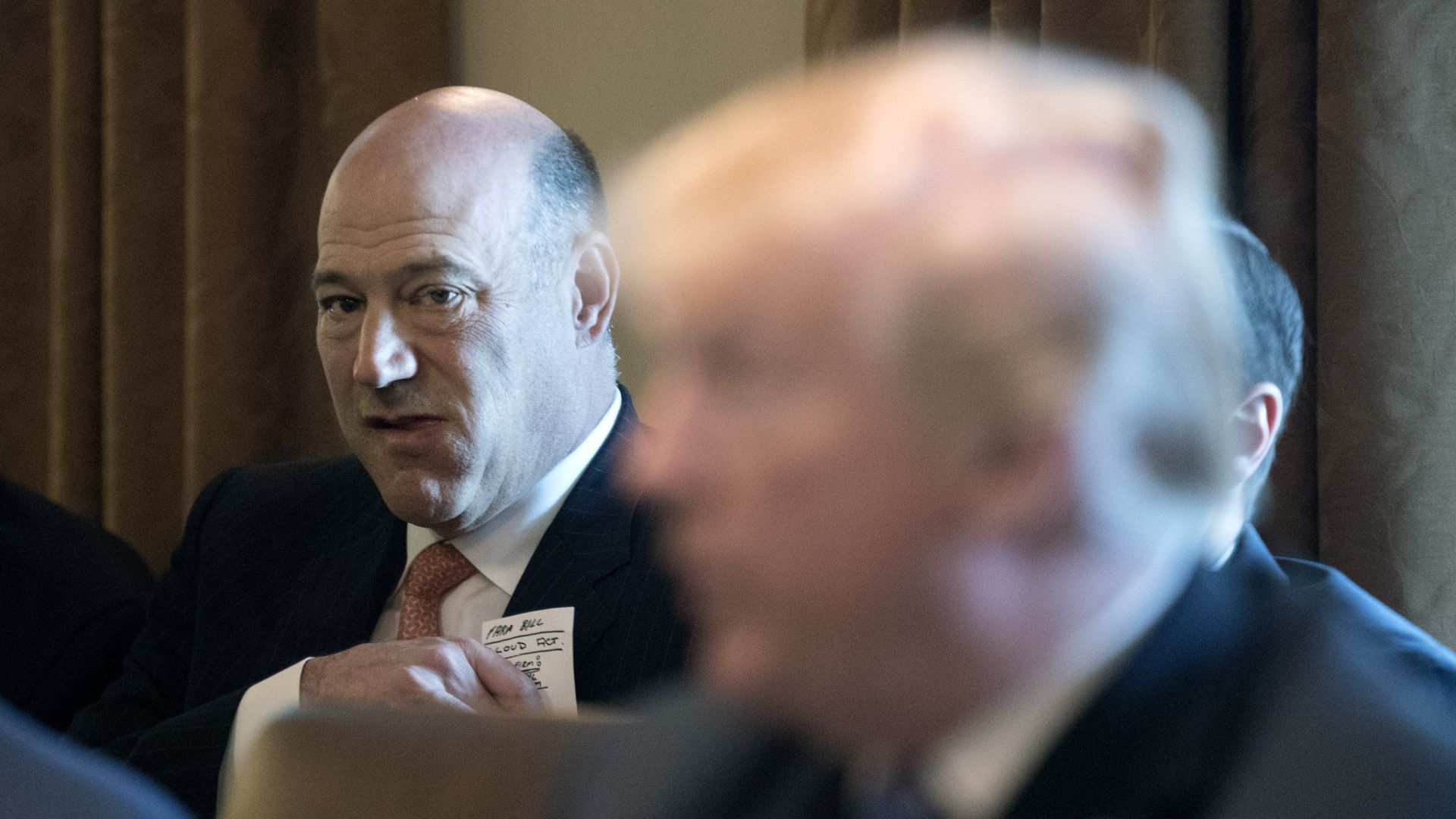How the globalists fought — and failed
Add Axios as your preferred source to
see more of our stories on Google.

Gary Cohn. Photo: Michael Reynolds/Pool/Getty Images
Trade has been the Trump administration's biggest internal policy fight. For more than a year, senior officials met weekly in the Roosevelt Room, and occasionally with Trump in the Situation Room and Oval Office, to hash out differences.
Gary Cohn, Trump's economic adviser until April and fellow "globalists" — a small group that included Treasury Secretary Steven Mnuchin and former Staff Secretary Rob Porter — were often forced into a defensive crouch, trying to beat back the hardliners' ideas in real time in front of the president.
Cohn fought hardest in these meetings, according to sources in the room, calling Navarro a liar and telling him he knew nothing about economics.
I spoke to Cohn this week about his role in challenging Navarro, Commerce Secretary Wilbur Ross, and ultimately the president over their dedication to tariffs as a tool in trade negotiations:
- Sources say Cohn internally acquiesced to putting tariffs on washing machines and solar panels but fought tooth and nail, and ultimately resigned, over Trump's decision to impose massive tariffs on steel and aluminum.
- Cohn said he's not opposed to tariffs in every situation, but views tariffs on inputs rather than finished goods as economically disastrous because they affect so many industries.
Cohn says flatly that trade deficits don't matter.
- "China is producing goods, not services, that we want to buy and they're producing them cheaper than we can produce them ourselves.
- "The old smokestacks that we used to have in the United States in the 1950s ... have moved to China, because people didn't like working in those environments."
Cohn disagrees with the idea that America needs a domestic steel industry for its national defense:
- He says it's unlikely America will go to war with allies like Canada from whom the U.S. imports steel.
- "We're not fighting a 1950s war anymore with tanks on the ground ... Look how effectively we're doing in North Korea with sanctions. Look at cyber. The computer is more powerful than any piece of steel."
Bottom line: Cohn worries that by putting tariffs on steel and aluminum, Trump will ultimately hurt American farmers and consumers, because China and other countries will retaliate by putting higher tariffs on U.S. agriculture.
